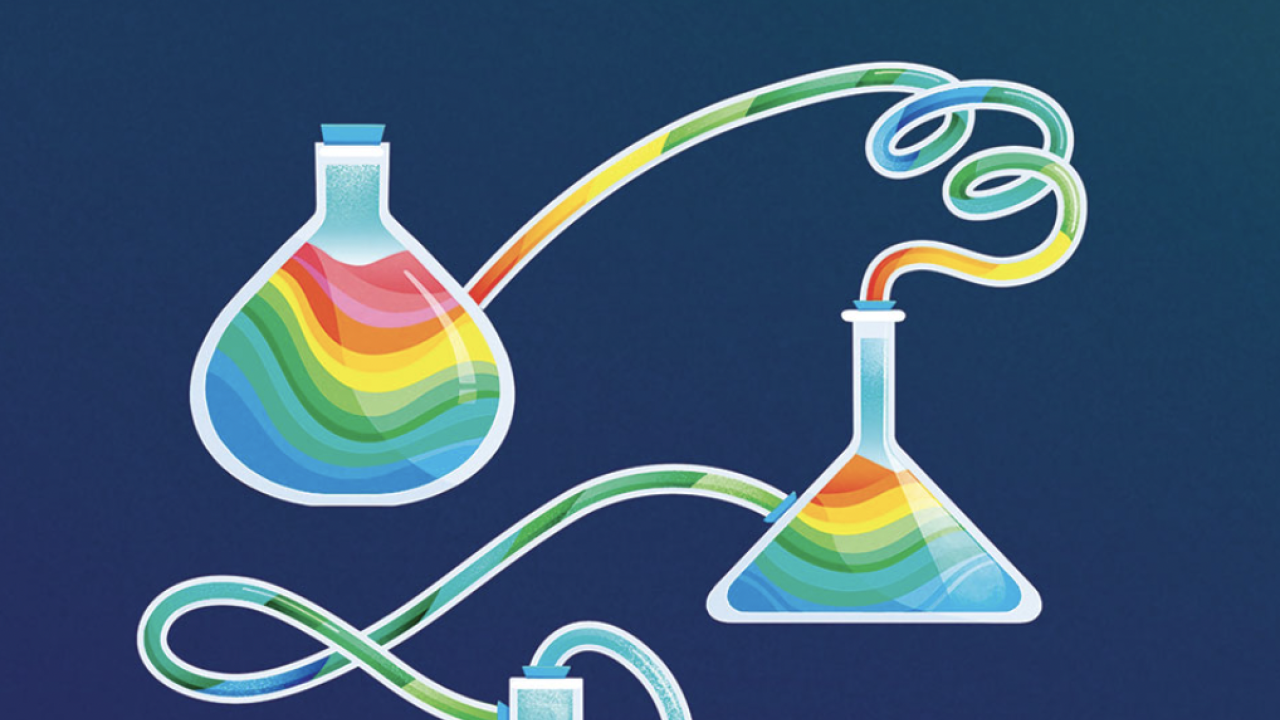
Changing Minds
For decades, possession and use of drugs like LSD and cannabis has come with a threat of prosecution and jail time. But in the past few years, researchers have started taking a closer look at these compounds, finding potential for new treatments for psychiatric and central nervous system problems such as seizures, depression, anxiety and post-traumatic stress disorder. UC Davis scientists are among the small group of licensed researchers pushing the field forward — including launching startup companies to help bring these new drugs to market.
UC Davis associate professor in chemistry David Olson became interested in psychedelic drugs for psychiatric treatment as a postdoctoral researcher at the Broad Institute in Cambridge, Massachusetts.
Olson’s laboratory synthesized a number of compounds similar in structure to ibogaine and came up with one they called tabernanthalog, or TBG. Similar to other psychoplastogens like ketamine, LSD and MDMA, tabernanthalog promoted growth of branches and spines in rat nerve cells, and showed positive effects in animal models of depression and addiction. It did not have negative effects on the heart like ibogaine, and it did not cause a “head twitch” response in mice, considered to be a marker for hallucinations in humans. The work was published in Nature in 2021.
While currently approved drugs treat the symptoms of mental illness, Olson believes that psychoplastogens have the potential to restore the prefrontal cortex, a key region of the brain involved in motivation, cognition and decision-making in the human brain.
“It’s a paradigm shift to a healing-based approach.” — David Olson, UC Davis Associate Professor of Chemistry
While Olson is working on analogs of psychedelic drugs, fellow chemistry professor Mark Mascal is working on analogs of cannabidiol, or CBD, one of the active components in cannabis.
It is relatively simple to convert CBD to tetrahydrocannabinol, or THC, which gives cannabis its psychoactive properties. That raises concern that legalized CBD products could be diverted to produce recreational THC.
"Legality is still an important aspect of developing CBD as a drug, including internationally." — Mark Mascal, UC Davis Professor of Chemistry
Instead, Mascal’s lab works with 8,9-dihydrocannabidiol or H2CBD, a synthetic analog of the drug, which cannot be converted to THC. They developed a method to synthesize H2CBD and showed that it could successfully treat seizures in rats. That work was published in 2019 in Scientific Reports.
Read the full article at UC Davis Magazine.
